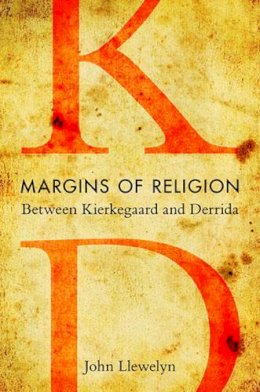10%OFF

Stock image for illustration purposes only - book cover, edition or condition may vary.
Margins of Religion: Between Kierkegaard and Derrida
John Llewelyn
€ 41.99
€ 37.65
FREE Delivery in Ireland
Description for Margins of Religion: Between Kierkegaard and Derrida
Paperback. Pursuing Jacques Derrida's reflections on the possibility of "religion without religion," this book makes room for a sense of the religious that does not depend on religions or traditional notions of God or gods. It shows why and where religion matters. Series: Studies in Continental Thought. Num Pages: 488 pages, black & white illustrations. BIC Classification: HRAB. Category: (U) Tertiary Education (US: College). Dimension: 5969 x 3963 x 26. Weight in Grams: 689.
Pursuing Jacques Derrida's reflections on the possibility of "religion without religion," John Llewelyn makes room for a sense of the religious that does not depend on the religions or traditional notions of God or gods. Beginning with Derrida's statement that it was Kierkegaard to whom he remained most faithful, Llewelyn reads Kant, Hegel, Nietzsche, Feuerbach, Heidegger, Sartre, Levinas, Deleuze, Marion, as well as Kierkegaard and Derrida, in original and compelling ways. Llewelyn puts religiousness in vital touch with the struggles of the human condition, finding religious space in the margins between the secular and the religions, transcendence and immanence, faith ... Read more
Show LessProduct Details
Format
Paperback
Publication date
2008
Publisher
Indiana University Press United States
Number of pages
488
Condition
New
Series
Studies in Continental Thought
Number of Pages
488
Place of Publication
Bloomington, IN, United States
ISBN
9780253220332
SKU
V9780253220332
Shipping Time
Usually ships in 7 to 11 working days
Ref
99-50
About John Llewelyn
John Llewelyn is former Reader in Philosophy at the University of Edinburgh. He is author of several books, including Appositions of Jacques Derrida and Emmanuel Levinas (IUP, 2002) and Seeing Through God (IUP, 2004).
Reviews for Margins of Religion: Between Kierkegaard and Derrida
"There is nothing comparable to this book within contemporary continental philosophy of religion." —David Kangas, University of California, Berkeley "[This book] contributes to a post-modern philosophical approach that takes a theological turn in phenomenology while remaining within the context of the Christian tradition." —INTNL JRNL PHILOSOPHY RELIGION, 2010, Volume 67
